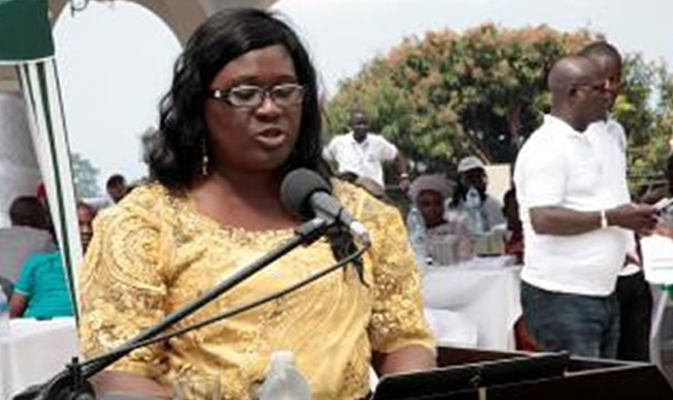By Joseph S. Margai in Freetown, Sierra Leone
Road traffic crashes have been one of the causes of most of the deaths and deformities of people in Sierra Leone. In most cases, the drivers are at fault. Most of them are sometimes in the influence of alcohol or might have driven for most parts of the night and could not take two or more hours of rest before sitting behind the steering again. In such cases, fatigue might be in control of the vehicle rather than the driver.
Over speeding, careless and reckless driving, defective vehicles and lack of road signs, ironically on very good roads in Sierra Leone, which inspire fast and careless driving, are some of the reasons for road traffic crash the country.
It is worth noting that in any road traffic crash, in which there are cases of deaths and deformities there are some consequences. Family members, the country and always society suffer. In a case where someone dies or deforms in road traffic crashes, the surviving family members face economic hardship, if the dead or deformed victim was a breadwinner of the family. Similarly, if the dead or deformed victim of road traffic crash was a major contributor to the socio-economic development of the country, it’s a big loss.
World Health Organization (WHO) data published in May 2014, revealed that road traffic accidents’ deaths in Sierra Leone reached 1,382 totaling to 1.47 percent of deaths. The age adjusted death rate is 27.40 per 100,000 of population thereby ranking Sierra Leone 25th as the country where lots of people die as a result road traffic crashes in the world.
As we are approaching the festive season, the number of vehicles, especially from commercial drivers and holiday makers, will increase and during such season, drivers don’t drive with caution as vehicular movements will increase more than normal times.
At her presentation on Thursday 26th October, 2017, at Elle’s Guest House on Femi Turner Driver in Goderich, Freetown, the Executive Director of Sierra Leone Road Safety Authority (SLRSA), Dr. Sarah Finda Bendu, said in order to promote road safety, there is a need for the provision of rest-stops as well as first aid centers along provincial routes.
“We should also establish and disseminate a code of conduct to be known as the “highway code” for drivers and other users of roads and highways. We should also establish and maintain a data bank of relevant information on vehicles and transport industry as a whole,” she said.
In SLRSA’s view, in most cases of road traffic crashes, most of the deformities and deaths are preventable. Some people die because there are no first aid centers along provincial routes. The call to establish first aid centers is timely and direly needed in the country if untimely death is to be prevented during road traffic crashes.
There is a need also to establish rest-stops. This will enable drivers, who have driven for a very long distance, to stop and rest for a while before they carry on their trip. Most of the road traffic crashes in Sierra Leone are caused by fatigue as some drivers have no time to rest and they will be sleeping while driving.
Driving itself deserves the total attention of the driver. Road traffic crashes could occur with the slightest distraction from driving. So, these moves to get a first aid centers and rest-stops along provincial routes are highly welcomed.
With its mission to regulate and coordinate development in the road transport industry, including the registration and licensing of vehicles, the licensing of drivers, the prescription of routes for passenger and goods transportation the promotion of road safety and for other matters connected thereto, the institution has been making tremendous strides under the leadership of Dr. Sarah Finda Bendu-a pacesetter.
Prior to her appointment as substantive Executive Director of SLRSA in April 2012, abandoned vehicles, including those that are left on the road whenever they are involved in road accident, were visible all over the streets and highways, thereby causing further road accidents, and prevent the free flow of vehicular movements. Abandoned vehicles, especially those on major streets, have always been an eyesore to well-meaning Sierra Leoneans and foreigners as well.
Dr. Bendu and her team of energetic staff have been clearing them from the street, a job that she has vowed not to stop doing until road safety is achieved. She has procured utility and tow trucks to enhance the speedy removal of abandoned vehicles. Her Road Safety Corps have also been clamping vehicles that are being maintenance on the streets.
SLRSA’s goals/objectives include to design, develop and administer rules and regulation regarding the registration and licensing of vehicles whether for private or commercial use, test the fitness of vehicles for their intended use and the fitness of persons to be drivers of vehicles.
“Our other goals/objectives are to inspect and supervise vehicles, repairs and maintenance services. We also do routing and monitoring of passenger and goods transportation,” she said on Thursday 26th October, 2017, at Elle’s Guest House on Femi Turner Driver in Goderich, Freetown.
The Patriotic Vanguard’s Sanpha Sesay, in his article titled: “Road traffic accidents can be another epidemic in Sierra Leone”, published on 22nd February 2017, cautioned that the speed limit in Sierra Leone needs to be modified.
“80 miles per hour is not recommended in our roads with just one lane up and one lane down. The government needs to understand the geographical variations in road traffic fatalities in country. It is a public health burden to most of us in the diaspora, this persistence of a high level of road accidents in our country,” he writes.
Road safety itself requires the collaborative efforts of all organizations, groups, individuals, and institutions. SLRSA might put in place all modalities including safety precautionary signs but if the road users don’t recognize those signs, the Authority will have nothing to do to prevent road traffic crashes.

